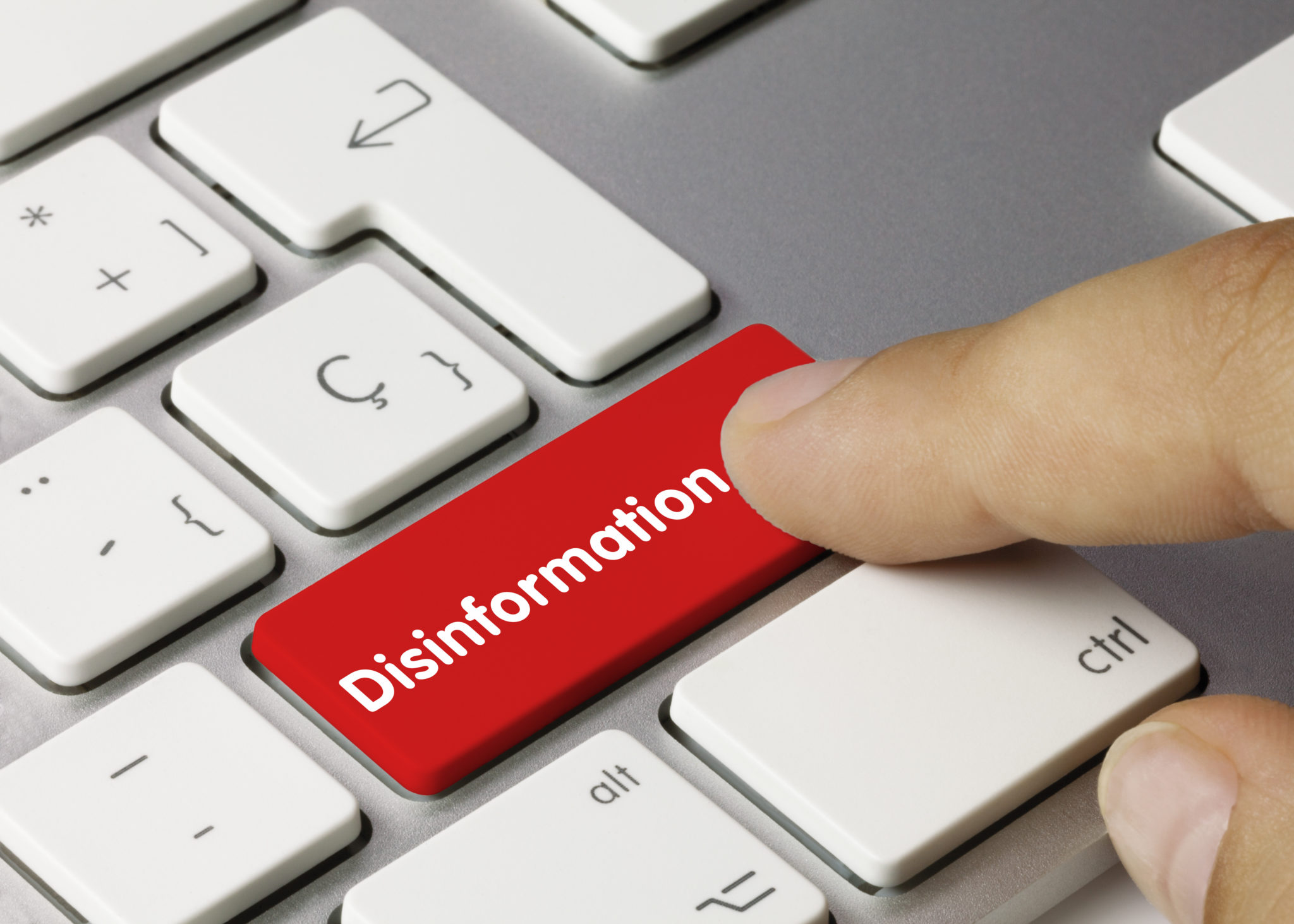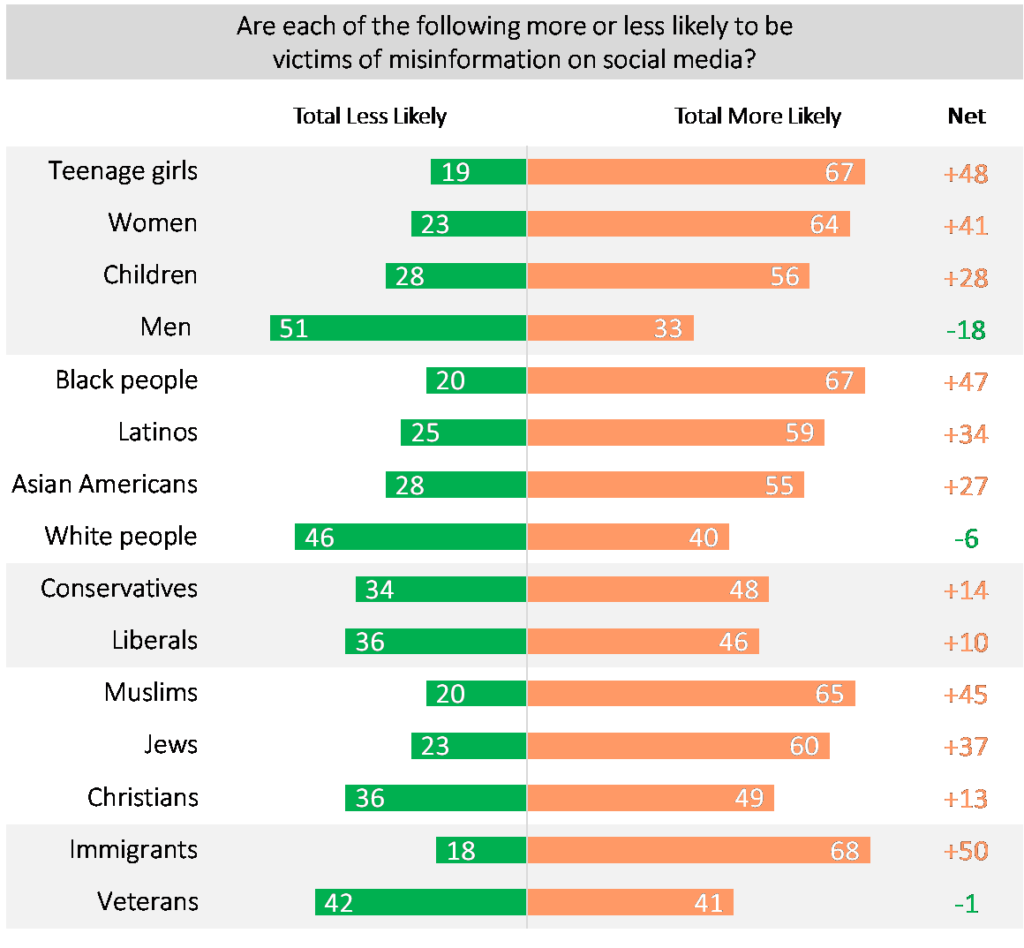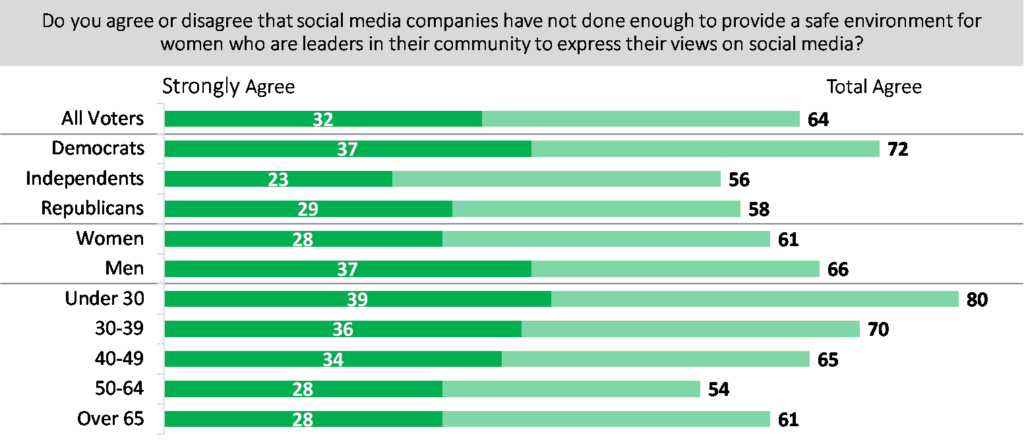Thanksgiving officially kicks off the holiday season and all that entails: good food, visiting…
New Research from Lake Research Partners: Disinformation on Social Media
Jonathan Voss
| Sep 1, 2020

Our team at Lake Research Partners recently conducted a survey of 1300 likely 2020 voters to determine perceptions of misinformation, harassment, and harmful content on social media—with particular analysis of how online toxicity impacts women, people of color, and other marginalized communities. We conducted these interviews online in mid-July 2020.
Our survey results indicate that awareness about negative content on social media is rising among Americans. We notably found that voters across party lines overwhelmingly say that the spread of lies and misinformation is a serious problem that happens too often. Here’s more on what we learned:
- Voters agree that there are groups that intentionally lies and misinformation. Fully 85 percent of voters think that the intentional spread of misinformation is a very or somewhat serious problem, and an 84 percent majority of voters agree that “some groups intentionally spread misinformation about people and events on social media as a tactic in order to keep people divided.”
- Voters believe that bullying and harassment of women is harmful and common on social media. They see the intentional spread of lies and misinformation and prevalence of hateful bullying as a serious problem, and majorities of voters say that women, people of color, religious minorities, and immigrants are more likely to be victims of misinformation on social media.

- Sixty-one (61) percent of voters say they have noticed more content promoting lies and hate on social media over the last few years, including 65 percent of Democrats, 59 percent of Republicans, and 53 percent of independents. Voters also do not think that social media companies have done enough to provide a safe environment for women (56 percent), Black people (52 percent), or Latinos (52 percent) to express their views.
- Voters believe that this behavior is especially directed toward women who seek public office or lead in their communities or professions, in order to damage their credibility, humiliate them, and prevent them from engaging in public life or taking leadership roles. Sixty-four (64) percent agree that social media companies have not done enough to provide a safe environment for women leaders to express their views on social media.

- Strong majorities of voters across party lines want Facebook and Twitter to do more than they currently are to prevent the intentional spread of lies and misinformation. Seventy (70) percent of voters want Facebook to do more, including 72 percent of Democrats, 68 percent of Republicans, and 66 percent of independents. Sixty-four (64) percent want Twitter to do more than they currently are doing, including 67 percent of Democrats, 61 percent of Republicans, and 56 percent of independents.
- Frustration over inaction on the spread of lies and misinformation is one of several issues that contribute to deteriorating views over the past few years toward social media in general and Facebook specifically. The data in our survey suggests that perceptions of Facebook’s job performance around stopping the intentional spread of lies and misinformation correlates to mistrust of them as a source of news and information and hurts their overall favorability among voters.






